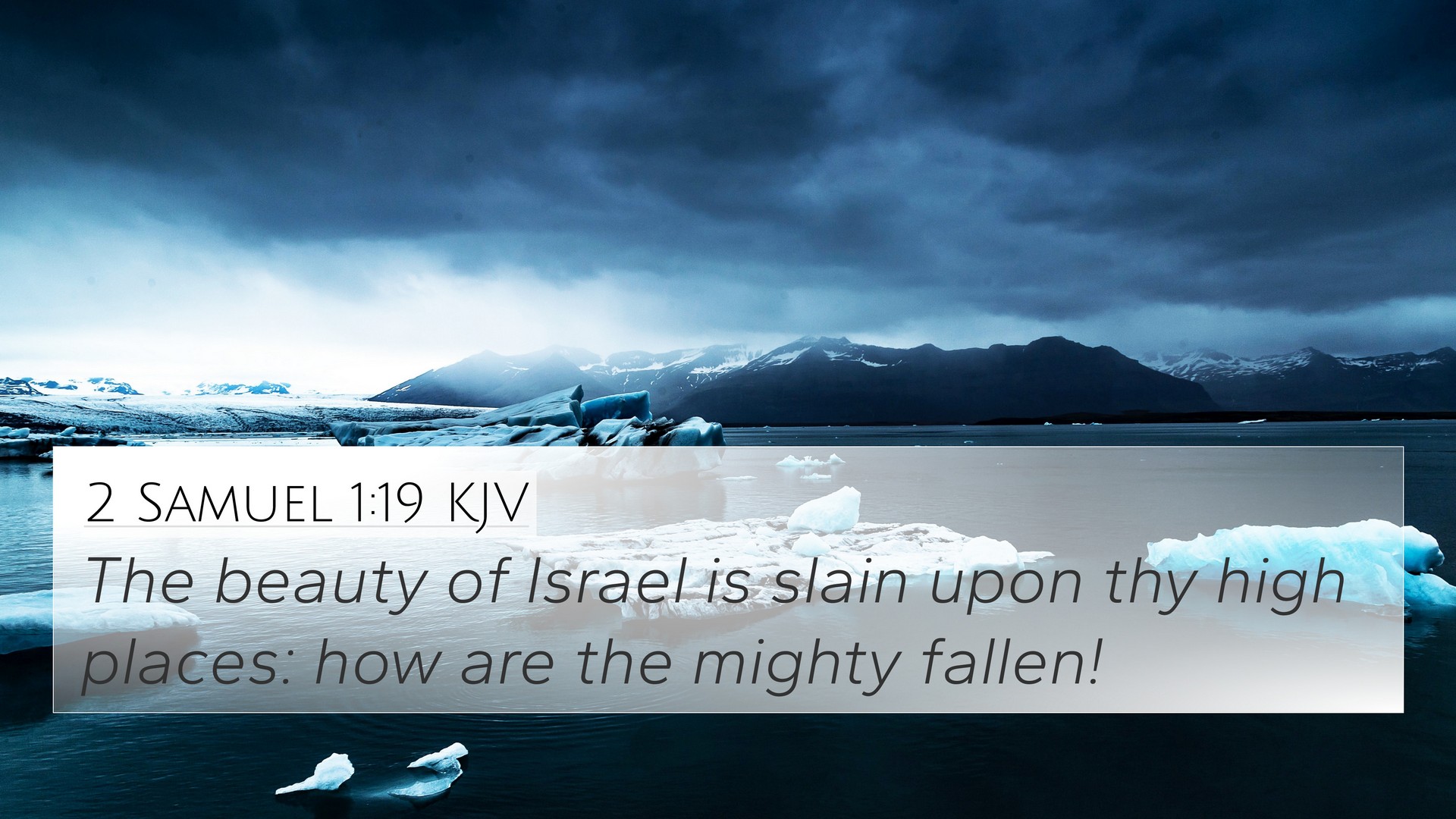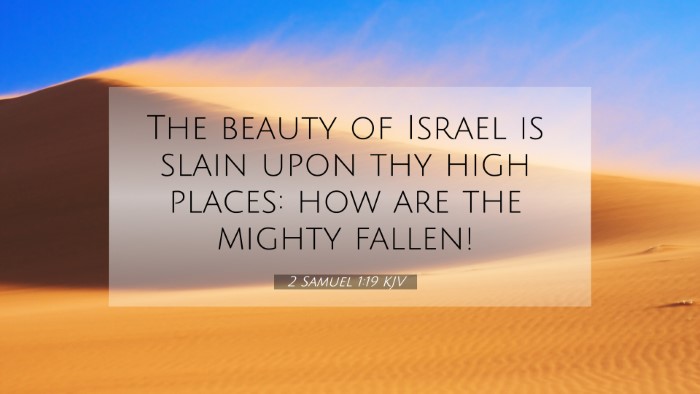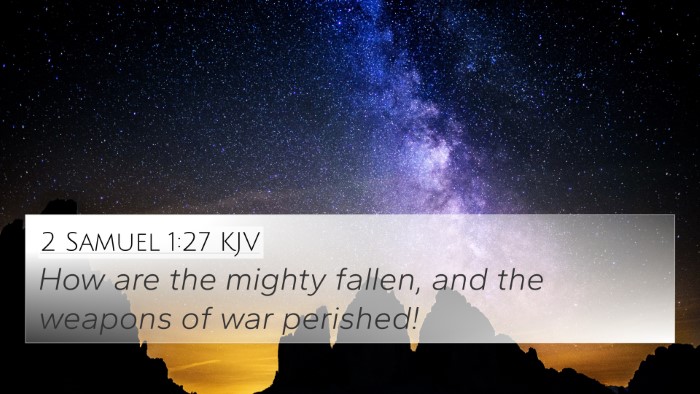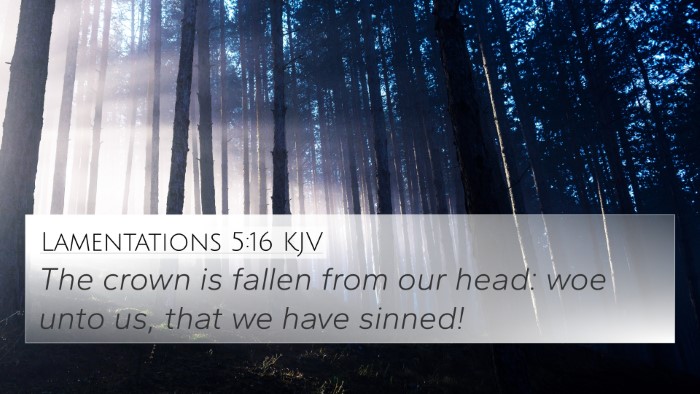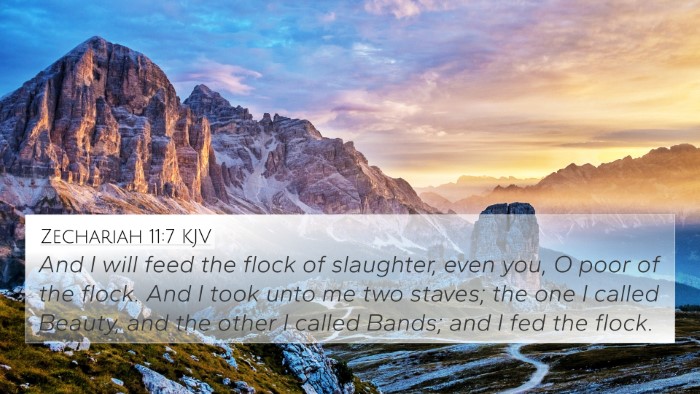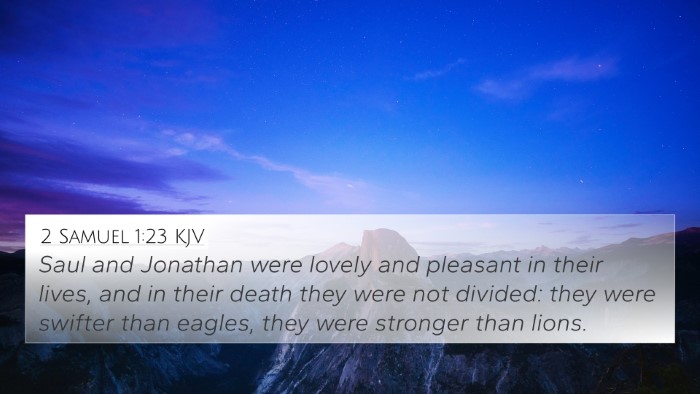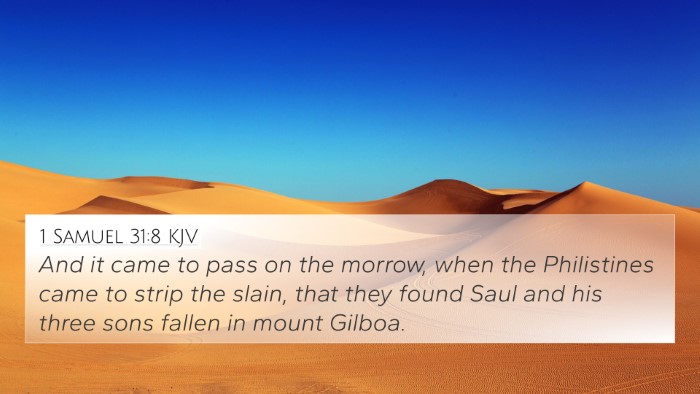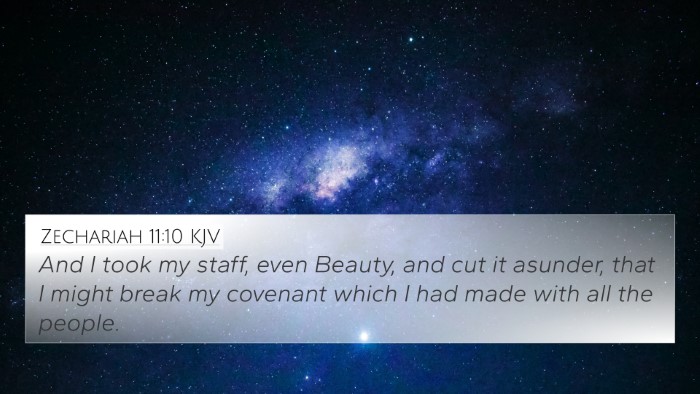Understanding 2 Samuel 1:19
Bible Verse: “The beauty of Israel is slain upon thy high places: how are the mighty fallen!” - 2 Samuel 1:19
Meaning and Interpretation
This verse, spoken by David upon hearing of Saul and Jonathan's deaths, encapsulates a deep sense of loss, mourning, and reflection on the fallen state of Israel's leaders. It specifically highlights the contrast between their once glorious position and their tragic demise.
Key Themes
- The Beauty of Israel: This phrase signifies not only the physical attractiveness of the nation but also its strength and the honor of its leaders.
- The Fallen Mighty: The lament addresses the downfall of powerful figures, emphasizing the transient nature of human glory and strength.
- Courage and Leadership: David references the importance of strong leadership in Israel's history, revealing both his personal sorrow and national grief.
Cross-References and Related Verses
This verse connects with several passages that explore similar themes of lamentation, the nature of leadership, and divine judgment:
- 1 Samuel 24:4 - Shows David’s respect for Saul, reflecting his understanding of God’s anointed leadership.
- 1 Chronicles 10:13-14 - Highlights the reasons for Saul’s death, providing insight into the spiritual decline of Israel.
- Lamentations 1:6 - Discusses the desolation of Jerusalem, paralleling the sadness expressed in David’s lament.
- Ezekiel 19:1-4 - This passage uses a lion metaphor for Israel's leaders, emphasizing their once powerful, now fallen state.
- Psalms 22:12 - Shares the emotions of being surrounded by the mighty, resonating with David's sorrow.
- Isaiah 10:34 - Speaks of the downfall of the strong trees, metaphorically mirroring the mighty of Israel.
- Ecclesiastes 1:2 - Reflects on the vanity of life, tying into the fleeting nature of human glory and strength.
Commentary Insights
Various public domain commentaries offer layered insights into this poignant verse:
Matthew Henry: Henry comments on the emotional depth of David’s lament, stressing that the “beauty of Israel” was not merely physical but also the spiritual integrity of the nation, which was now deeply marred by the fallen state of its leaders.
Albert Barnes: Barnes emphasizes the sorrow for Jonathan, David's beloved friend, highlighting the personal loss intertwined with national tragedy. He notes that the phrase expresses the utter despair felt by anyone who valued righteous leadership in Israel.
Adam Clarke: Clarke draws attention to the poetic nature of the lament, suggesting that David's words encapsulate the broader theme of regret over what Israel has lost, both materially and spiritually, by allowing the righteous to fall and allowing sin to dominate.
Thematic Connections
This verse serves as an excellent illustration of how to engage in thematic Bible verse connections. It opens the door for a comparative Bible verse analysis focusing on themes of loss, leadership, and divine providence:
- Transition from Glory to Despair: The verses reflect on the shift in Israel's fortunes and invite the reader to consider how leadership impacts the entire nation.
- God’s Sovereignty in Leadership: It prompts a reflection upon God’s role in raising and lowering leaders, encouraging a focus on righteous living.
- Emotional Languish and Grief: The communal aspect of mourning is prominent, tracing paths of lament throughout the scriptures.
Tools for Cross-Referencing
To deepen understanding and locate related scriptures, various tools for Bible cross-referencing can be utilized:
- Bible Concordance: Essential for quickly identifying keywords that lead to related scripture.
- Bible Cross-Reference Guide: Provides structured references for thematic studies.
- Bible Chain References: Useful for maintaining a line of thought through various scriptures.
Conclusion
2 Samuel 1:19 is rich in meaning, offering profound insights into the nature of leadership, the fragility of life, and the importance of righteous leadership in guiding a nation. Engaging in scriptural cross-referencing allows readers to explore these themes more deeply, fostering a greater understanding of the interconnected narratives within the Bible.
